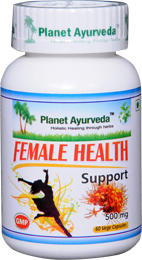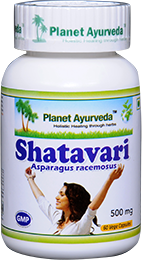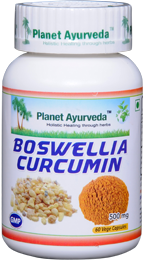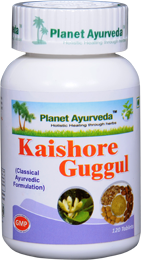Ayurvedic Treatment of Asherman’s Syndrome (AS)
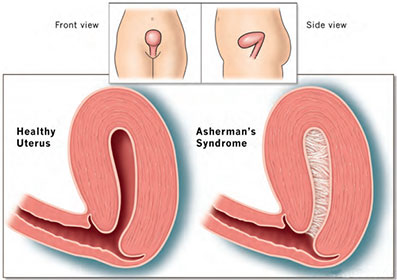
About Asherman’s Syndrome
Asherman’s syndrome, also known by the name intrauterine adhesions, is an acquired condition where there is formation of scar tissue (adhesions) in the uterus or in the cervix (opening to uterus). Intrauterine adhesions are scars that result from trauma to the uterus. Endometrium is lining of uterus that composed of two layers: the functional layer, which is the superficial and is shed every month during menstruation, and the underlying basal layer from which regenerates the functional layer. Myometrium is the layer below Endometrium.
In Asherman’s syndrome, flat scar tissue replaces the functional endometrium which does not respond to hormones and causes changes in the menstrual cycle involving decrease in menstrual flow, cramping and abdominal pain increases, ultimately cessation of menstrual cycles (amenorrhea), and in some cases, it may results in infertility. Sometimes even parts of the myometrium are mistakably removed during surgery. Scarring may also develop without the formation of adhesions and is known as fibrosis.
Causes of Asherman’s Syndrome
- Asherman syndrome is a rare condition in women where most cases are due to several dilatation and curettage (D&C) procedures.
- A recently pregnant uterus is more susceptible of developing Asherman’s after D&C compared to a non-pregnant uterus
- A severe pelvic infection unrelated to surgery may also lead to Asherman’s syndrome.
- Retained placenta requiring manual removal.
- Sometimes scarring may be after uterine surgeries such as Cesarean section or myomectomy for fibroids or tumors.
- Intrauterine adhesions is also caused by infection, as genital tuberculosis.
- Even in some cases cause is unknown, patients in that case have never had any D & C or other surgery.
Risk Factors
- Women who have undergone any intra uterine surgery/procedures
- Women having increased risk for miscarriages.
- Over the age of 35 women.
- Recurrent miscarriage can also be a symptom of Asherman’s syndrome if they are of unknown cause.
- Women who suffered from complications during delivery period such as retained placenta or post-partum hemorrhaging (PPH).
Ayurvedic View
As explained by Ayurveda if Vata get vitiated, that causes irregular and painful menstruation, disturbing “Pitta-the thermal energy”. Increased “Pitta” can lead to heavy bleeding, hot flushes and irritable condition.
Symptoms of Asherman’s Syndrome
Women suffering from this condition may not have an obvious symptom, but certain problems includes:
- Menstrual irregularities such as very light periods (hypo menorrhea) or absence of periods (amenorrhea).
- May lead to Infertility due to adhesions including the uterus and fallopian tubes.
- Recurrent pregnancy loss (miscarriage).
- Pelvic pain, if scar tissue blocks the outflow of the menstrual blood, causing uterine cramping and pelvic discomfort or pain.
Herbal Remedies for Asherman’s Syndrome by Planet Ayurveda
Planet Ayurveda offers effective herbal remedies such as Female Health Support, Shatavari capsules, Boswellia Curcumin, Kaishore Guggul & Pradrantak Churna for ayurvedic treatment of Asherman’s syndrome. These herbal remedies are prepared from using best quality herbs and strictly follow the principles of Ayurveda. All these herbal remedies of Planet Ayurveda are 100 percent pure, natural and vegetarian. These are free from chemicals, additives and preservatives. These are safe to use as these are free from side effects.
1. Female Health Support
As Ayurveda explains that the imbalance of 3 energies- Vata, Pitta and Kapha (Kinetic, Thermal and Potential energy) in the body causes diseases. Synergistic work of herbs in this product controls vitiated “Vata” and “Pitta”. It supports health of female reproductive organs.
Ingredients:
- Ashok (Saraca Indica): Ashok tree whose bark has medicinal properties especially for regulating female menstrual cycles. It is good for irregular menses, premenstrual tension, painful menstruation etc. Provides benefits to the endometrium and uterine muscles which makes it effective as a uterine tonic for irregular menstrual cycles and miscarriage.
- Lodhra (Symplocos racemosa): This herb Lodhra has great use in all female problems. Bark of this tree has an astringent property and has effective result in excessive discharge (leucorrhoea), excessive and painful menstruation. Lodhra is even prescribed to the women’s after their delivery. It helps to detoxify the blood.
- Shatavari (Asparagus racemosus): ‘Shata’ word is defined as 100 and vari means ‘times’. This herb is natural source of anti-oxidants and micronutrients. This herb provides amazing benefits to the complete reproductive system of the females and even regulates hormonal balance. Shatavari is helpful in removing weakness in females. It strengthens the uterus.
Dose: 1-2 Capsules twice daily, with plain water, after meals.
2. Shatavari Capsules
This herbal formulation is a tonic and has rejuvenative properties and can be used by females of any age. Shatavari is useful to be used in almost all menstrual problems that includes amenorrhea and dysmenorrhea. Efficient medicinal herb for hot flushes during pre-menopausal phase and acts as an effective female hormone balancer and enhances estrogen production in females, its deficiency would otherwise trouble the females during the post-menopausal phase manifesting in dryness of vagina. It helps to increase fertility among women in reproductive phase.
Ingredient: Shatavari (Asparagus racemosus)
DOSE: 1-2 capsules twice daily with meals.
3. Boswellia Curcumin
A perfect blend of two wonderful herbs Curcumin (Curcuma longa) and Shallaki (Boswellia serrata) is used to manufacture these capsules. These herbs possess different medicinal properties including anti-inflammatory, anti-microbial and pain relieving. Due to their similar functions, these herbs are proved to be well supporting herbs in the treatment of Asherman’s Syndrome.
Ingredients:
- Shallaki (Boswellia serrata): Shallaki has anti-inflammatory, anti-tumor, immunomodulatory and many other properties. It acts as the natural alternative to NSAIDs (Non steroid anti-inflammatory drug) due to the presence of Boswellic acids. Boswellia acids are the major component that shows pain relieving effects.
- Curcumin (Curcuma longa): The main active component of Curcuma longa is Curcumin. It is the best anti-inflammatory, antioxidant, hepato-protective and pain relieving herb, which is being used in medicines as well as home remedies for centuries. It is considered as the best herb to fight the infections and boost immunity as well. Additionally, it is also good at preventing cancerous cells.
DOSE: 1 Capsule two times a day with normal water, after the meals.
4. Kaishore Guggul
Kaishore Guggul is a classical formulation, available in the forms of Tablets from the Experts of Planet Ayurveda. It is prepared using the herbs as mentioned in Sharangdhar Samhita, Chapter of Gout in Vatarakta Chikitsa. All the ingredients included in these tablets work synergistically in reducing the accumulation of Pitta and preventing Complications. It is also good at balancing the tridoshas and maintaining the overall health of females. It is a good supporting remedy in the menstruation related disorders.
Ingredients:
- Triphala – Amalaki (Phyllanthus emblica), Haritaki (Terminalia chebula), Bibhitaki (Terminalia bellirica)
- Guggul (Commiphora mukul)
- Black Pepper (Piper nigrum)
- Red Physic Nut (Baliospermum montanum)
- Guduchi (Tinospora Cordifolia)
- Long Pepper (Piper longum)
- Indian Jalap (Ipomoea turpethum)
- Ginger (Zingiber officinale)
- Vidanga (Embelia ribes)
DOSE: 2 tablets twice daily with plain water, after meals.
5. Pradrantak Churna
An effective herbal formulation for female health problems like Premenstrual Syndrome, Menopausal Syndrome etc. Particularly effective in painful menstruation, irregular menses. It supports the regulation of menstrual cycles.
Ingredients:
Lodhra (Symplocos racemosa), Ashok (Saraca indica), Udumbur (Ficus glomerata), Arjuna (Terminalia arjuna)
- Udumbur (Ficus glomerata): This herb in Ayurveda has extensive use in managing excessive menstrual bleeding.
- Arjuna (Terminalia arjuna): Arjuna is the natural herb which pacifies kapha and pitta dosha and efficiently supports the uterus and regulates the hormones. Helps in controlling excess bleeding in menorrhagia.
DOSE: 1-2 teaspoonful twice daily, with water or iced tea or flavored juice, after meals


